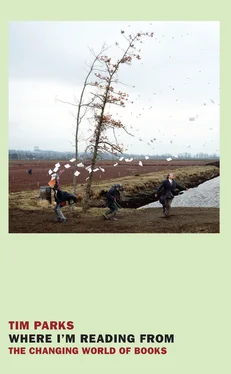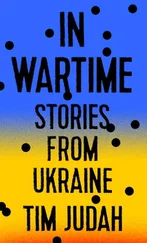It’s interesting that in his time Hardy’s novels were severely criticized for being immoral, because they suggested that society’s crushing of sinners and above all adulterers was cruel. Today there is no such criticism and we all (excluding, perhaps, evangelicals like my parents) side gladly with Tess, Jude, and Hardy’s many other victims of Victorian severity. We have a different take on life and on Hardy’s novels because we grew up in different systems. Lawrence, on the other hand, has enjoyed no such turnaround in reader response. He is so forthright as a storyteller, so determined to have his way, and so blithely unconcerned when a pusillanimous character is brushed aside by anyone who has the courage to live life to the full; one thinks of poor Banford in The Fox , dispatched without pity because she stands in the way of Henry and March’s marriage, or indeed of Professor Weekley himself, whom Lawrence deprived of an extraordinary wife.
What I’m suggesting then is that much of our response to novels may have to do with the kind of “system” or “conversation” we grew up in and within which we had to find a position and establish an identity. Dostoevsky is always and immediately enthralling for me. The question of whether and how far to side with good or evil, with renunciation or indulgence, grabs me at once and takes me straight back to my adolescence. And how I loathe the end of his books where the sinner repents and gets on his knees and sees the error of his ways in an ecstasy of self-abasement. I love Dostoevsky, but I argue furiously with him. Same with an author like Coetzee in Disgrace . I feel locked into argument with him. Beyond any question of “liking” these books are important to me.
On the other hand, when I read the Norwegian writer Per Petterson, who again is chiefly concerned with fear—vulnerability to the elements and the terror of being abandoned by those we have most trusted—I immensely admire his writing, but find it hard to care. When asked on two occasions to review Petterson, I read every word carefully and with pleasure and gave the novels the praise they very much deserve, but I wouldn’t go out of my way to read another book of his. His world, the disturbing imagery he draws on, the rhythm and pacing of his sentences, are far removed from my concerns. Affinities, as Goethe tells us, are important. Few works of art can have universal appeal.
IT’S NOW A commonplace that there is no “correct” reading of any book: we all find something different in a novel. Yet little is said of particular readers and particular readings, and critics continue to offer interpretations they hope will be authoritative, even definitive. In this regard, I’ve been thinking how useful it might be if all of us “professionals” were to put on record—some dedicated website perhaps—a brief account of how we came to hold the views we do on books, or at least how we think we came to hold them. If each of us stated where we were coming from, perhaps some light could be thrown on our disagreements. Here is my own contribution.
Books began, in my case, when my parents read to me, so I knew from the start that reading must be a “good” thing. Fervently evangelical—a clergyman and his wife—my parents only did things that were good. They read us children’s stories and the Bible. Later I exploited this faith of theirs in the essential goodness of literature to plot my escape from the suffocating world in which they lived and wanted everyone else to live.
When they read to us, a daughter and two sons, perhaps beside a smoldering coal fire, with an evening cup of cocoa, the books created a feeling of togetherness; we were united in one place in the thrall of one parental voice, my mother’s usually, and afterward there was a shared store of stories and memories that made us a family. But when I read alone, searching out books that offered a broader view of life, books isolated me and divided us. Now I had ideas and arguments that countered theirs. I read avidly, safe in the knowledge that they thought this was a good thing. But soon enough they picked up my copy of Gide, of Beckett, of Nietzsche; then there were tears and conflict. Away from the Bible and children’s books, reading was not always good, and when it wasn’t good it was bad. Very bad.
Even today there is a subtle tension in my reading between the desire to free myself from the immediate community with its received ideas, and the desire to share what I read with those around me, those I love. On the other hand, it was perfectly clear to me in adolescence that when we read alone, each member of the family would choose quite different books, and that what you were reading inevitably declared where you stood on the things that mattered in our house. You had to be careful when you chose to share a book.
My father’s study was wall-to-wall Bible concordances, huge tomes in scab-red covers, each brittle page divided into two yellowing columns and dustily flecked with text references, brackets, footnotes. A glance was enough to tell me I would never read them. Perhaps they inspired my lifelong impatience with books that seem overtechnical: jargon-ridden works of literary criticism, for example. I connect them with my father. There was something unhappily withdrawn about his study; he hated noise; no one could challenge him in his knowledge of the scriptures. But it did not seem like all that cross-referencing had much to do with living and breathing. My family created a situation where I went to books for fresh air, not scholarship.
Mother had no shelves of her own but supplied the books kept in a small rotating mahogany bookcase in the living room; these were family books where goodness was not a theory or theology but a question of warm, benevolent emotions or, perhaps, swashbuckling patriotism. Dickens had the most space I suppose, closely followed by the adventure stories of a British World War II pilot with the improbable name of Captain Bigglesworth. John Buchan was there, and The Secret Garden , and Water Babies , and of course, Three Men in a Boat . This was permitted reading. I read them all and felt hungrier than ever.
Right at the back of the cubbyhole under the stairs, where you had to get on your knees as the ceiling came down to meet the floor, wrapped in thick brown paper and tied in string, was a book published in the 1940s about marriage and sex; it included some instructions as to how to go about making love if you never had before. Things like: Don’t be in a hurry to get all your clothes off. Think of your partner’s pleasure as much as your own. This book, whose title I have forgotten, was hugely useful to me. It was also interesting to discover that my righteous parents did this stuff, and again that the book could not appear on other shelves in the house. Evidently, there were books that were good, or for the good, but not good for everyone at every moment.
In my sister’s room, painted pink with flowery curtains and a pink bedspread, the shelves were full of Georgette Heyer and similar romances of a historical flavor. At some point I must have noticed the relationship between the book covers and the room’s decor. This was the aura my sister moved in. Five years older than me, she played the guitar in church and was always prayerful; anything to do with sex had to come in a patina of propriety and pink. I read about half of a Georgette Heyer novel, but did not find it useful.
My brother, the middle child, was the rebel. In his bookshelf, among sundry science fiction by Asimov and Ballard, not even hidden, was a paperback called Lasso Round the Moon by Agnar Mykle, published in 1954 (the year I was born). Paperbacks were new to me. There was a photograph on the cover that promised sensual not spiritual bliss. I understood at once that only certain sections of this volume need be read. They were already well thumbed.
Читать дальше












